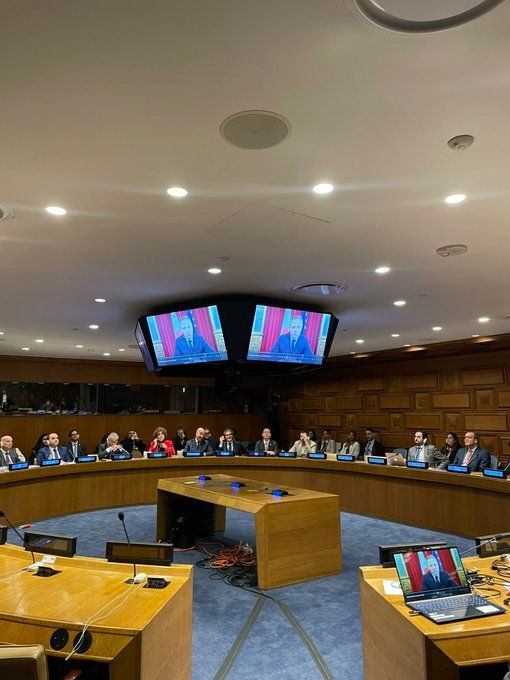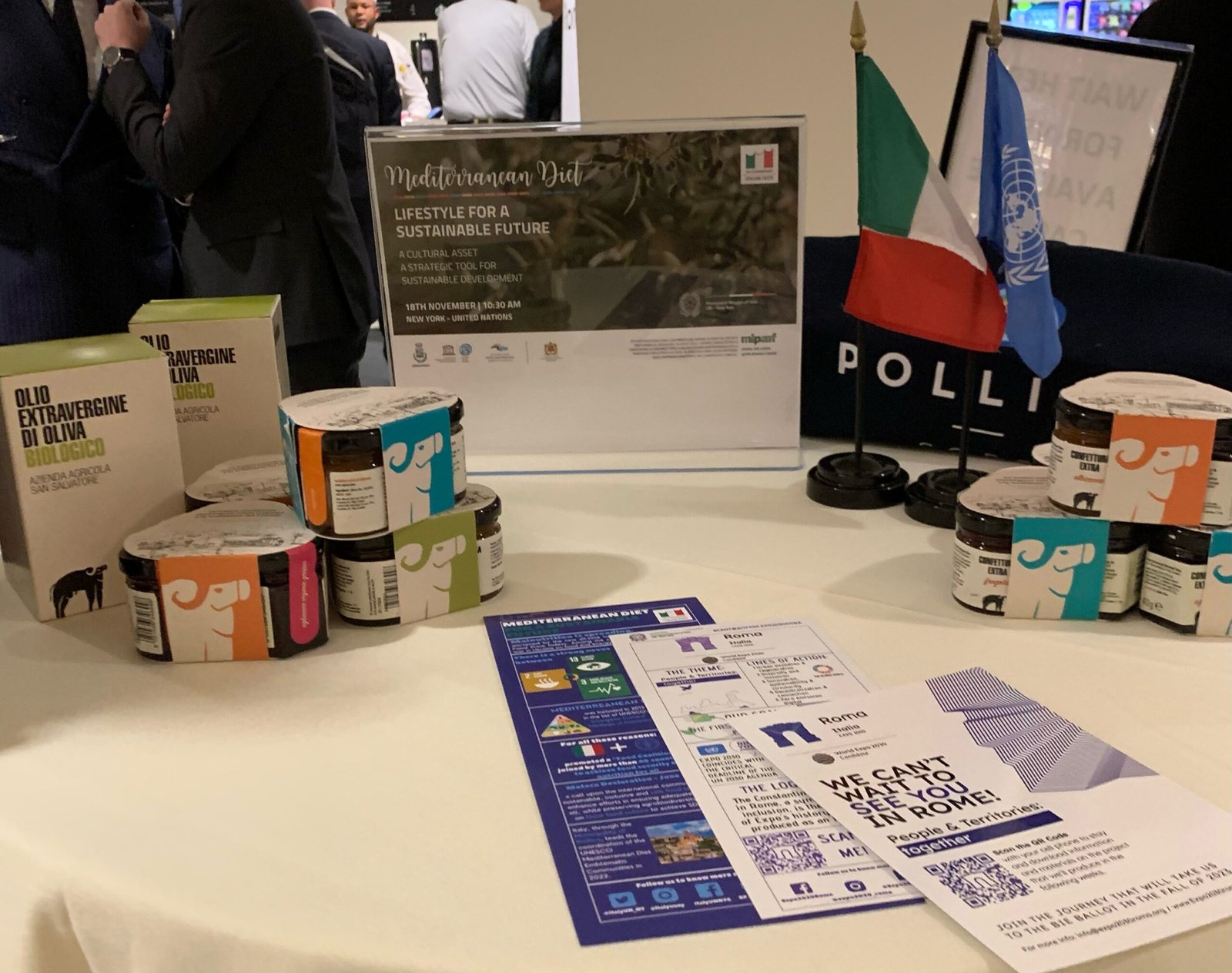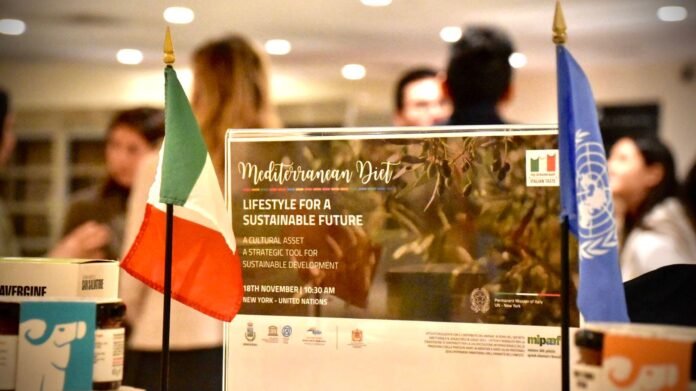NEW YORK, 18 NOVEMBER – The Mediterranean Diet is a tangible example of a driving force for Sustainable Development, and a model of excellence to ensure sustainable food systems encompassing the various social, economic and environmental dimensions. This message was conveyed by the Italian Permanent Representative, Ambassador Maurizio Massari, during an event at the United Nations.
The panel “Mediterranean Diet – Lifestyle for a sustainable future” was co-organized by Italy on the occasion of the Week of Italian Cuisine in the World together with UNESCO, the Future Food Institute, the municipality of Pollica, the Centro Studi Dieta Mediterranea ‘Angelo Vassallo’ and the Permanent Mission of Morocco with the support of the Ministry of Agriculture, Food Sovereignty and Forests.

Moderated by Sara Roversi of the Future Food Institute, the event took place in the year of the Italian coordination (through the Municipality of Pollica) of the network of Emblematic Communities of the UNESCO Mediterranean Diet. “There is scientific evidence acknowledging that the Mediterranean Diet is one of the most important diets and lifestyles for people, planet and prosperity and it is therefore one of our allies to accelerate action on the 2030 Agenda for Sustainable Development”, said Massari: ” The Mediterranean diet involves a set of skills, knowledge, but also rituals, symbols and traditions on the preparation, production, sharing and consumption of food, it can be further promoted but we also need to preserve it, together with the other traditional diets. In a world in fast transformation, we must ensure that healthy, traditional and sustainable diets remain at the centre of food systems, food security and nutrition, avoiding threats to their uniqueness and value”.
FAO Deputy Director Maurizio Martina and the Minister of Agriculture, Food Sovereignty and Forestry, Francesco Lollobrigida, sent video-messages: “Agri-food systems do not work optimally if they cannot make healthy diets possible for everyone. There’s a lot of talk about a unique global approach to diet, but it’s not the right method. The homologation of food has no future, we must instead rely on a plurality of diets, and in particular on local ones, of which the Mediterranean Diet is an example”. Concepts conveyed also by Lollobrigida: ” It is my duty to protect the products of our Mediterranean Diet and shield them from the standardization of the industrial model, centred on quantity to the detriment of quality”.
According to the Minister “we must commit ourselves to proposing food education at every level, avoiding simplistic solutions that have proven to be inadequate and misleading, besides being market-distorting. This is the case of the so called “Nutriscore” and of other mechanisms that confuse consumers, rather than inform them so that they may be able to make their own free, conscious choices, suited to their own diets”.
Among the attendees were Luigi Scordamaglia, CEO of Filiera Italia, Michael Sperling of the Culinary Institute of America (CIA) and Stephen Ritz, of Green Bronx Machine. Pier Luigi Petrillo, currently Professor of Comparative Law of Cultural Heritage and Chairman of the World Committee of Experts of the Convention for the Safeguarding of the Intangible Cultural Heritage of UNESCO, was among the team that in 2010 worked on the Mediterranean Diet dossier in view of its recognition. Stefano Pisani, Mayor of Pollica, Emblematic Community of UNESCO for the Mediterranean Diet and former global president of the Slow Cities Network, paid tribute to the “parents of the Mediterranean Diet”, Ancel and Margaret Keys: during the Sixties, these two American scientists lived in a fraction of his Municipality and theorized the beneficial properties of their neigbours’ diet, contributing to its celebration around the world.

Other speeches were made by Ana Paula Martins, Mayor of Tavira, Emblematic Community of the UNESCO Mediterranean Diet for Portugal; Mohamed Sefiani, Mayor of Chefchaouen and Regional Ambassador of the Global Covenant of Mayors for Climate and Energy (GCOM); Jelena Ivanišević, Focal Point for the Mediterranean Diet for the UNESCO Emblematic Community of Brač AND Hvar, Croatia; Benedetto Zacchiroli, President of the International Coalition of Inclusive and Sustainable Cities of UNESCO (ICCAR).
Today, a UNESCO report on food and culture has given Italy the world record of UNESCO awards in the agri-food sector: with 5 out of the 68 globally assigned, our country ranks first, followed by Morocco with four, three in Turkey and Azerbaijan, two in Belgium, France, Spain, Tunisia, Japan, Korea and Mexico. The remaining are one each in several other countries. (@OnuItalia)

